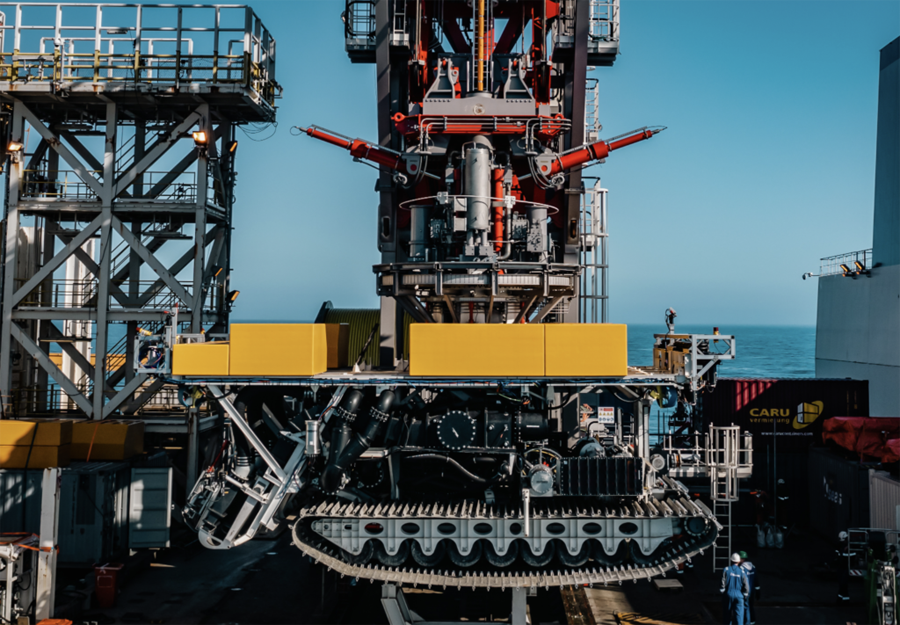
The Vancouver-based company said engineers successfully lowered the Allseas-designed collector vehicle to the seafloor at depths of 2,470 meters, marking the first time the vehicle had been subjected to ultra-deep-water temperatures and pressures. The company said engineers then subjected the vehicle to extensive testing of its various pumps and critical mobility functions, driving 1,018 meters across the seafloor.
“The pilot nodule collection system is so far performing beautifully throughout these trials and getting the collector vehicle into the deep water in the Atlantic has given the team the opportunity to really pressure-test critical components,” Gerard Barron, The Metals Company CEO said in a media release.
Since 2019, Allseas and TMC have been working to develop a pilot system to responsibly collect polymetallic nodules that sit unattached on the seafloor and lift them to the surface for transportation to shore. Nodules contain high grades of nickel, manganese, copper and cobalt — key metals required for building electric vehicle batteries and renewable energy technologies.
Previously, TMC and Allseas announced successful harbor wet-test commissioning and shallow-water drive tests in the North Sea.
The trials are part of the International Seabed Authority’s (ISA) regulatory and permitting process and the environmental impact data collected both during and after this nodule collection test work will form the basis of the application for an exploitation contract by TMC’s wholly-owned subsidiary, Nauru Ocean Resources Inc. (NORI).
Environmentalists have called for a ban on deep-seabed mining that would extract resources including copper, cobalt, nickel, zinc, lithium, and rare earth elements from nodules on the ocean floor.
Development of technologies to collect polymetallic nodules first began in the 1970s when oil, gas and mining majors including Shell, Rio Tinto (Kennecott) and Sumitomo successfully conducted pilot test work in the Clarion Clipperton Zone (CCZ) of the Pacific Ocean, recovering over ten thousand tonnes of nodules, TMC said. The polymetallic nodule fields in the CCZ of the Pacific represent the largest known, undeveloped nickel resource on the planet.
In the decades since, the ISA was established to develop the regulatory framework to govern mineral extraction in the high seas while technology development efforts have largely focused on scaling proven nodule collection technologies and optimizing for minimal seafloor disturbance and environmental impact.
In March, TMC signed a non-binding Memorandum of Understanding with Epsilon Carbon to complete a pre-feasibility study for a commercial-scale deep-sea nodule processing plant in India called Project Zero Plant.




